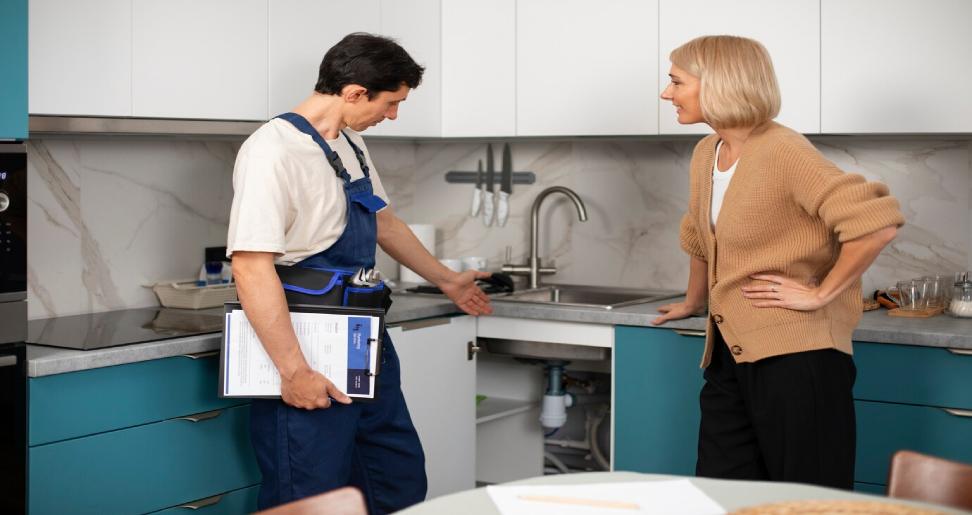Water damage can be a costly and stressful ordeal for homeowners. From structural issues to potential health hazards like mold growth, the consequences of water damage can be severe. However, with proactive measures and awareness, you can significantly reduce the risk of water damage in your home. Here are 10 essential tips to help you protect your property and belongings:
1. Regularly Inspect and Maintain Your Roof
Your roof serves as the primary barrier against water infiltration. It’s crucial to conduct regular inspections to spot any issues such as damaged or absent shingles, cracks, or gaps. Address any damaged shingles promptly and verify that the flashing around chimneys and vents remains secure. Routinely clear out gutters and downspouts to prevent water buildup that can lead to roof leaks.
Consider upgrading to a new metal roof, especially in Michigan’s variable climate, which can offer enhanced durability and resistance to weather elements compared to traditional roofing materials. Metal roofs are known for their longevity and ability to withstand harsh conditions, making them a prudent investment for protecting your home against water damage.
2. Check and Maintain Plumbing Regularly
Inspect your plumbing fixtures and pipes for leaks or signs of wear. Check under sinks, around toilets, and behind appliances like washing machines and dishwashers. Replace old or worn-out hoses and pipes as needed. Consider installing leak detection devices that can alert you to potential problems early on.
3. Monitor Your Water Bill
Unexpected increases in your water bill could indicate a hidden leak somewhere in your plumbing system. Keep an eye on your water usage and bills regularly. If you notice a sudden spike in water consumption without explanation, investigate promptly to identify and address any leaks.
4. Inspect Appliances Regularly
Appliances like water heaters, washing machines, and dishwashers can develop leaks over time. Inspect these appliances regularly for signs of leakage, such as puddles of water, rust, or water stains. Replace older appliances before they fail to minimize the risk of water damage.
5. Seal Windows and Doors
Properly seal windows and doors to prevent water from seeping in during heavy rain or storms. Check for gaps or cracks in caulking and weather stripping, and repair or replace as necessary. This not only helps prevent water intrusion but also improves energy efficiency.
6. Maintain Your Landscaping
Ensure that your yard is graded away from your home’s foundation to prevent water from pooling around the base of your house. Consider installing a French drain or gutter extension to redirect rainwater away from your home. Trim back trees and shrubs to prevent roots from damaging underground pipes.
7. Install a Sump Pump
If your home is prone to basement flooding or sits in a low-lying area, consider installing a sump pump. A sump pump can help remove excess water and prevent basement flooding during heavy rains or snow melts. Test your sump pump regularly to ensure it’s functioning correctly.
8. Be Prepared for Freezing Weather
Frozen pipes can burst and cause significant water damage. Insulate pipes in unheated areas of your home, such as basements, attics, and crawl spaces. During periods of freezing weather, keep faucets dripping to prevent pipes from freezing. Know where your main water shut-off valve is located and how to turn it off in case of a burst pipe.
9. Monitor Your Home’s Humidity Levels
High humidity levels can contribute to mold growth and structural damage over time. Use a dehumidifier in damp areas like basements and bathrooms to maintain optimal humidity levels (around 30-50%). Ensure good ventilation in these areas to reduce moisture buildup.
10. Have a Plan for Emergencies
Despite your best efforts, emergencies can still happen. Have a plan in place for how to respond to water damage quickly and effectively. Know where emergency contacts are located, including your insurance provider and a reputable water damage restoration company. Keep important documents and valuables in a secure, waterproof location.
Conclusion
Preventing water damage requires vigilance and regular maintenance, but the effort is well worth it to protect your home and belongings. By following these 10 essential tips, you can reduce the risk of water damage and enjoy greater peace of mind knowing that your home is well-protected against water-related issues. Remember, early detection and prompt action are key to minimizing the impact of water damage on your property.
Additional:

